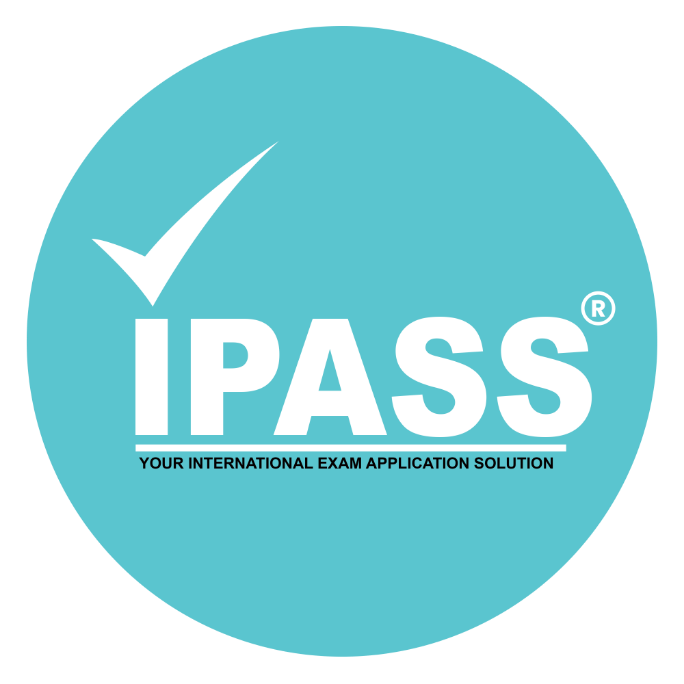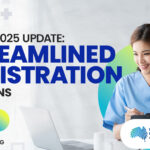Your cart is currently empty!

Study Strategies: How to Pass NCLEX?
Studying for years as a medical professional is quite hard. Sleepless nights and unending reviews are always on the rock, but this is all worth it once you finally get your diploma. However, when pursuing your American dream, a nursing graduate will face another crucial test, the National Council Licensure Examination or NCLEX.
Instead of being intimidated by the nature of the exam, research everything you can on how to pass NCLEX. You’re fortunate if you graduated from a nursing school that polished you immensely. Nevertheless, it would be best to study and comprehensively relearn the nursing foundations and specialized knowledge.
Before tackling the various study strategies on how to pass the NCLEX, let’s first discuss what NCLEX is, why it is important, how the exam is graded, and many more.
Why is NCLEX Important?
You will not be recognized as a licensed medical professional in the United States and other countries without passing NCLEX. The NCLEX protects the public by establishing professional practice standards and ensuring that all nurses can demonstrate entry-level nursing competence. Moreover, passing the NCLEX indicates that you have the knowledge and skills required to perform your duties as a nurse.
The NCLEX will test how much you know about nursing and how well you can apply that knowledge and your critical thinking skills to make decisions in common nursing and patient care situations. Therefore, taking the NCLEX requires you to analyze and apply the knowledge you’ve learned in nursing school.
What to Expect on the NCLEX?
The NCLEX exam is computer-based, both interactive and adaptive. Thus, your next question will depend upon your answer to the previous question. Each time you answer correctly, the following question will be of a higher level.
On the other hand, if you respond incorrectly to a question, the computer will provide you with a slightly easier question. You will continuously answer the questions until you either pass or fail. There could be as few as 75 questions on the NCLEX or as many as 265 questions. Furthermore, the number of overall questions you will receive depends on how many questions you answer correctly.
The NCLEX is a timed exam with a maximum completion time of six (6) hours. The NCLEX consists of fill-in-the-blank, multiple-response, drag-and-drop, graphics-based, and multiple-choice questions. The vast majority of the questions found on the NCLEX are multiple-choice, with four possible answers for each question. In addition, you will have to interpret tables, charts, graphs, and pictures on the exam.
The examinee is not allowed to bring anything into the testing center. Instead, they provide an erasable board for taking notes and an on-screen calculator for making calculations.
How is NCLEX Graded?
The NCLEX does not present examinees with a numerical score. Instead, you get a pass or fail grade. To pass the NCLEX, you must demonstrate competency by answering a minimum number of questions correctly.
When the tester answers enough questions correctly with a 95% confidence interval, the candidate passes the test. Conversely, the candidate will fail the test when they do not rise about the pass line with 95% confidence.
Consider this- there is a horizontal line on an axis called the “pass line.” Anything above it passes, and anything below it does not. So you begin exactly on the line at question zero, and for each correct answer, you move up a notch, and for each incorrect answer, you move down a notch. The computer will give you immensely complicated questions with each correct response to help evaluate your expertise level.
You must ultimately surpass the pass line and show competency with little uncertainty to pass. When this decision is made, the test can end between questions 75 and 265 or at the maximum allotted time allowance (6 hours).
You will receive a notification of your grade from the State Board of Nursing two (2) to four (4) weeks after taking the exam. If you fail the NCLEX, you may retake it within 45 days of your first attempt. You will also be given a diagnostic report that details your exam performance. This report can be a helpful resource as you prepare to retake the exam.
How to Pass the NCLEX for the First Time
NCLEX is a crucial examination necessary if you want to work abroad. Thus, it’s best to study various nursing topics and subjects and research tips on how to pass the NCLEX exam. The following are among the most common yet the best study strategies for passing the NCLEX.
1. Understand the NCLEX Format
The NCLEX uses a Computerized Adaptive Testing or CAT format. This means that there is no single exam that is identical. Throughout the exam, a computer algorithm generates each new question based on your performance on previous questions. The test bank is comprehensive, with various question styles and content topics.
2. Don’t Self-Evaluate During the Test
Attempting self-evaluation while taking the test is pointless. Don’t assume you are below the pass level because you got a few “easy” questions in a row. Instead, pay attention to the issues at hand. What is simple to you might be difficult for someone else. Therefore, every question is as important as the next.
This exam is all about endurance. Prepare to sit full-time and focus on what is in front of you.
3. Find Ways to Manage Your Test Stress
Don’t worry since stress management approaches are available. Even though test anxiety is real, you made it through nursing school, so keep studying as you did in the past. However, even if you don’t typically experience test anxiety, there’s a chance that the pressure of such a significant test will make you uneasy.
There are a few important strategies to minimize stress while preparing for NCLEX.
● Take your exam preparation seriously, but don’t make it your entire life. Maintaining balance in the weeks and months leading up to the exam is critical.
● Spend time each day exercising, getting enough sleep, and enjoying yourself! If you stay balanced, your mind won’t make the test moment seem bigger than it is.
● Avoid studying or cramming information on the day of the NCLEX. Instead, use the morning before the test to clear your head. Moreover, focus on something that keeps you grounded, whether making a nice breakfast, listening to music, running, or doing whatever works for you.
Efficiently studying is ultimately the best way to calm your nerves. The NCLEX doesn’t seem as challenging when you are confident and prepared.
4. Determine your NCLEX Study Style
Everyone has slightly different learning styles, and you probably already are aware of yours. Therefore, be sure to personalize your study methods to suit you.
● If you learn best through visuals, make rough sketches of cardiac chambers, color-coded medication classes, and so on.
● Many online YouTube lectures and podcasts cover the NCLEX if you learn best through the auditory method.
● Make a study group go over concepts if you find that you learn best through discussion.
In general, mnemonic devices aid most students in learning difficult concepts. However, rereading, rewriting, and copying old notes is not enough. Instead, consider the lessons you’re learning from a holistic perspective and how they relate to your clinical experiences in school. Finally, have a good study schedule that works for you, such as 4-5 days per week, 4-5 hours per day.
5. Make a Study Plan
Focusing is easier if you set a few learning goals for yourself. For instance, a study plan may look like this:
● Study days. Establish a schedule for your week that specifies the days you will study, take breaks, and take practice tests.
● Before each study session, establish a goal. Perhaps it’s to complete x number of practice questions or master x specific content topic but be strategic.
Review study guidelines about how to pass the NCLEX exam and plan your strategy around it. Learn how to choose and use effective study methods to help you pass the test with flying colors.
NCLEX is a comprehensive test model that aims to assess knowledge acquired over the years, not days, so you must not cram for your exam under any circumstances. In addition, the most important thing you must remember is that NCLEX is a computerized test. Therefore, your preparation should include adequate time and effort in learning the material thoroughly.
6. Don’t Draw from Past Clinical or Work Experiences
When studying for the NCLEX, it is important to utilize your time wisely. It’s helpful to be realistic with your study schedule by planning and knowing what you can do. If you have previously worked in hospitals as nursing assistants or techs, that experience may have impacted your ability to answer test questions.
In addition, numerous topics or clinical skills are different between textbooks and basic healthcare, as you may have observed as a student nurse in a clinical setting. Therefore, answering NCLEX questions involves applying the guidelines in your knowledge of professional nursing. This method is meant to assist you in mastering every aspect of the exam so that you can confidently identify the correct responses.
The NCLEX exam is based on the most recent research, which means passing is possible. But it would be best if you were prepared by developing a study strategy that is both specific and realistic.
7. Hone Your Test-Taking Skills
The NCLEX is a challenging exam designed to measure your knowledge and ability to apply critical thinking. You must understand how the test is written and how your mistakes will be penalized to get the best score possible.
When you follow the advice in this study guide, you can eliminate wrong answers and avoid mistakes that have the potential to screw up your exam score. You will notice some themes in the answers as you practice:
● Before seeking medical attention, it is always best to evaluate the patient.
● Consider using the Airway-Breathing-Circulation method, etc.
● Deductive reasoning should be used even if you are unfamiliar with the underlying theories.
● If everything else fails, trust that nascent feeling known as “nurse intuition.”
You will undoubtedly be asked the dreaded select-all-that-apply questions. Instead, use the same systematic approach to eliminate incorrect answer choices based on knowledge and wording of answers.
8. Invest in Test Prep Resources
Many people choose their study material based on reviews, peer references, or personal preference. However, if you want to score higher and pass your NCLEX exam, investing in practice exam books or enrolling in a review course like UWorld is worthwhile.
Basic study techniques are the most common, including reading the material, taking notes, and summarizing information. These strategies are frequently combined with other approaches to learning to speed up and improve learning.
Spend time reading reviews to determine which guidebook style is best for you. All exam resource companies produce excellent guidebooks to help you prepare for the NCLEX exam.
9. Go Beyond the Practice Questions
Practice exams are among the most efficient and vital methods of preparation. However, taking practice exam questions is only part of the process.
It is also necessary to research questions that you answered incorrectly. Practice question banks explain why each answer choice is correct or incorrect and outline the specific content topic under which it falls. Jot down notes of which concepts you want to revisit so that you can focus on problem areas during your next study session.
Make a habit of practicing. It is especially useful to take at least one or two mock NCLEX exams so you are used to the experience of computer testing. Go through as much of the question bank as possible before exam day, and you will be miles ahead.
10. Prepare for Exam Day
The actual day of the exam is the most crucial time when taking NCLEX. Therefore, make sure to rest and sleep the week before the exam. Additionally, bring snacks to the center to keep in your locker if you need to take a break during the exam. Moreover, fill up your car with gas the night before the exam if you will travel by car.
To avoid being late for the exam, set your dependable alarm. In addition, bring a jacket or any clothes you can layer if you get cold at the testing center. It is easier to take the exam if you’re not freezing from the cold air conditioner.
Schedule your exam around your normal schedule. For example, plan a morning test if you are a morning person. On the other hand, schedule an afternoon exam if you enjoy slow mornings and sleeping in until noon. Most importantly, ensure to arrive early at the testing location with all required documentation.
The Bottom Line
Believe in yourself. NCLEX is another hurdle you have yet to conquer, but don’t forget you already have the required classifications to pass it. In addition, you already proved your nursing potential by graduating from nursing school. Thus, you deserved an extension on your name, a USRN!
We at IPASS have your back! IPASS Processing offers its service to nurses who wish to apply for the NCLEX in the United States. We ensure to provide and deliver you a smooth and hassle-free NCLEX application. For more inquiries, contact us now!
Disclaimer: IPASS Processing is not a recruitment agency. We do not hire or deploy medical professionals abroad. IPASS Processing is a processing agency that provides license exam application assistance in the United States, the Middle East, and Australia.
Recommended Reads
- Ace the May 2025 PNLE: Final Week Preparation Tips
- Nursing Job Opportunities in the Philippines for USRNs
- AHPRA Registration 2025: Updated Pathways for IQRNs
- The Benefits of Pursuing a Midwifery Career in the UK
- Types of Nurses: Discover Your Perfect Nursing Path
Recommended Topics
- ASCPi (1)
- Australia (8)
- Canada (5)
- Exam Tips (28)
- General (120)
- IPASS Events (10)
- IPASS News (129)
- Middle East Nursing (17)
- NCLEX (63)
- New Zealand (3)
- NMBI Ireland (1)
- Online Review (13)
- PNLE Online Review (2)
- Tourist Visa (1)
- UKNMC (1)
- US Nursing (12)
- UWorld (1)
- VisaScreen (3)








Leave a Reply